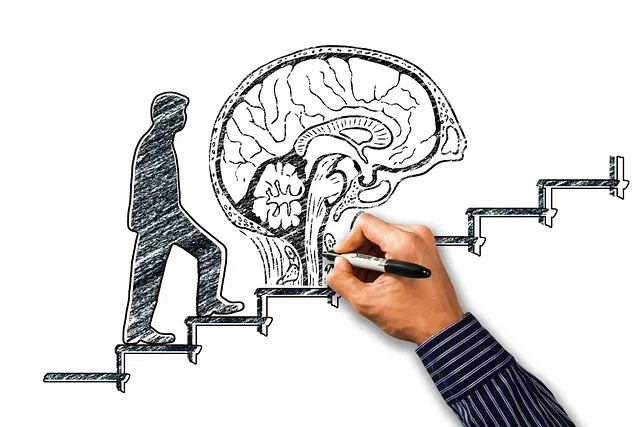In today's digital era, Artificial Intelligence (AI) is revolutionizing Search Engine Optimization (SEO), particularly in the realm of Technical SEO Training. AI-powered tools streamline tasks like keyword research, content optimization, and technical analysis by processing vast data swiftly and accurately. These algorithms predict user behavior, identify patterns, offer tailored recommendations, and enhance website structure for better search engine rankings and user experience. They automate repetitive tasks, provide insights into competitor strategies, and continuously adapt to changing search engine algorithms. Integrating Technical SEO Training with AI ensures businesses stay ahead in the dynamic digital landscape, optimizing websites for improved online visibility and success.
In the rapidly evolving digital landscape, Artificial Intelligence (AI) is transforming Search Engine Optimization (SEO). This article explores the multifaceted impact of AI on modern SEO practices, focusing on key strategies that drive online visibility. From understanding AI’s pivotal role to leveraging machine learning for competitor analysis and enhancing user experiences, we delve into essential components like Technical SEO Training. Discover how these innovative approaches optimize website structures, refine keyword research, and set the stage for future trends in digital marketing.
Understanding AI's Role in Modern SEO

In today’s digital era, Artificial Intelligence (AI) has emerged as a game-changer in the realm of Search Engine Optimization (SEO). AI-powered tools are revolutionizing how we approach and optimize websites for search engines. These technologies can analyze vast amounts of data, understand user intent, and provide valuable insights that were previously difficult to attain through traditional methods. By leveraging AI, marketers and SEO professionals can enhance their strategies, enabling them to stay ahead in a constantly evolving digital landscape.
AI plays a crucial role in modern SEO by streamlining various tasks, from keyword research to content optimization and technical analysis. Advanced algorithms can identify complex patterns, predict user behavior, and offer tailored recommendations. For instance, AI-driven Technical SEO Training programs help businesses navigate the intricate web of on-page and off-page optimizations, ensuring their websites are search engine-friendly. This includes identifying and fixing technical issues that might hinder a site’s visibility, such as crawl errors or slow loading times, thereby improving overall performance and user experience.
Key Benefits of AI-Powered SEO Strategies

AI-powered SEO strategies offer a multitude of benefits that can significantly enhance online visibility and drive organic traffic. One of the key advantages is the ability to process vast amounts of data quickly and accurately. AI algorithms can analyze trends, user behavior, and search patterns with unparalleled precision, enabling businesses to make data-driven decisions. This ensures that content creation, keyword optimization, and link building efforts are aligned with current market demands, resulting in improved search rankings.
Furthermore, these strategies automate repetitive tasks, freeing up time for marketers to focus on creative and strategic aspects of SEO. AI tools can automatically optimize meta tags, generate personalized content, and identify broken links or technical issues. This not only improves efficiency but also allows for more consistent and high-quality implementation of Technical SEO Training principles. By leveraging machine learning capabilities, businesses can stay ahead of the curve in a constantly evolving digital landscape.
Technical SEO Training: Unlocking AI Potential

In today’s digital landscape, successful online visibility requires a deep understanding and implementation of Technical SEO strategies. This includes optimizing website structure, improving site speed, ensuring mobile responsiveness, and creating an overall seamless user experience. AI-powered tools have emerged as game-changers in this domain, offering unprecedented insights and capabilities for SEO professionals. By integrating these tools into their practices, experts can unlock the full potential of Technical SEO Training.
AI enhances technical SEO by automating repetitive tasks, identifying complex issues, and providing data-driven recommendations. It analyzes vast amounts of website data, reveals hidden patterns, and offers actionable suggestions to improve crawl efficiency, fix broken links, and optimize meta tags. This not only saves time but also ensures that critical aspects of a site’s performance are regularly evaluated and enhanced, ultimately boosting search rankings and user engagement.
Optimizing Website Structure with AI

In today’s digital era, optimizing website structure for search engines is more complex than ever. AI-powered tools are revolutionizing how we approach Technical SEO Training. These advanced algorithms can analyze vast amounts of data to identify patterns and insights that were previously difficult to uncover manually. By understanding user behavior and search trends, AI enhances site navigation, improves information architecture, and ensures a seamless user experience across all devices.
One of the key benefits is its ability to automate repetitive tasks such as sitemapping, link analysis, and content optimization. This frees up time for SEO professionals to focus on strategic decision-making and creative problem-solving. Moreover, AI can adapt to changing search engine algorithms, ensuring that website structures remain optimized over time. As a result, businesses can enhance their online visibility, drive more organic traffic, and ultimately improve their search engine rankings.
Natural Language Processing and Keyword Research

Natural Language Processing (NLP) has transformed keyword research, an essential component of AI-driven SEO strategies. This technology enables search engines to understand user queries more accurately by interpreting the context and intent behind words. With NLP, algorithms can analyze vast amounts of text data, identify relevant keywords, and uncover hidden semantic connections, leading to more effective content optimization.
In the realm of Technical SEO Training, professionals learn advanced techniques for keyword research using NLP tools. These tools assist in uncovering long-tail keywords, identifying search trends, and exploring topic clusters, ensuring that website content aligns with user expectations. By leveraging NLP, SEO specialists can create strategic content plans, enhance site architecture, and ultimately improve search engine rankings, making their online presence more prominent and visible.
Machine Learning for Competitor Analysis

Machine learning algorithms are transforming the way we approach competitor analysis in AI-driven SEO strategies. By analyzing vast amounts of data, these intelligent systems can identify patterns and trends within a market, providing valuable insights into competitors’ strengths and weaknesses. This capability is particularly beneficial for technical SEO training purposes, as it enables practitioners to gain a deeper understanding of industry dynamics and stay ahead of the curve.
Through advanced natural language processing, machine learning models can sift through competitor websites, content strategies, and backlink profiles, uncovering hidden opportunities and threats. By continuously learning from new data, these tools adapt and improve over time, ensuring that SEO professionals have access to up-to-date information crucial for making informed decisions. This innovative approach enhances the efficiency of technical SEO training programs by offering real-time competitive intelligence.
Enhancing User Experience through AI

In today’s digital landscape, enhancing user experience is paramount for any online business. AI-powered tools are revolutionizing how we approach Technical SEO Training. By understanding and predicting user behavior, AI can optimize website design and content delivery to create seamless, intuitive interactions. This involves personalizing search results, suggesting relevant content, and dynamically adapting layouts based on real-time data.
Furthermore, AI analyzes vast amounts of user feedback and interaction patterns to identify pain points and areas for improvement. This deep insight enables continuous refinement of the user journey, ensuring each visitor receives a tailored experience that keeps them engaged and encourages conversions. Ultimately, this focus on UX through AI contributes significantly to search engine rankings by fostering higher user satisfaction and reduced bounce rates.
Measuring Success and Future Trends

Measuring success is a vital aspect of AI-driven SEO strategies, as it provides insights to refine and optimize campaigns. With machine learning algorithms analyzing vast data sets, marketers can track key performance indicators (KPIs) such as click-through rates, conversion metrics, and user engagement patterns in real time. This allows for quick adjustments to content, keywords, and site structure, ensuring maximum visibility and user satisfaction.
Looking ahead, the future of AI in SEO is promising. As natural language processing advances, AI tools will become even more sophisticated in understanding user intent and context. This will enable more precise keyword research, personalized content recommendations, and dynamic on-page optimization. Moreover, integrating Technical SEO Training into these processes ensures that professionals stay adept at keeping websites optimized for changing search engine algorithms.
